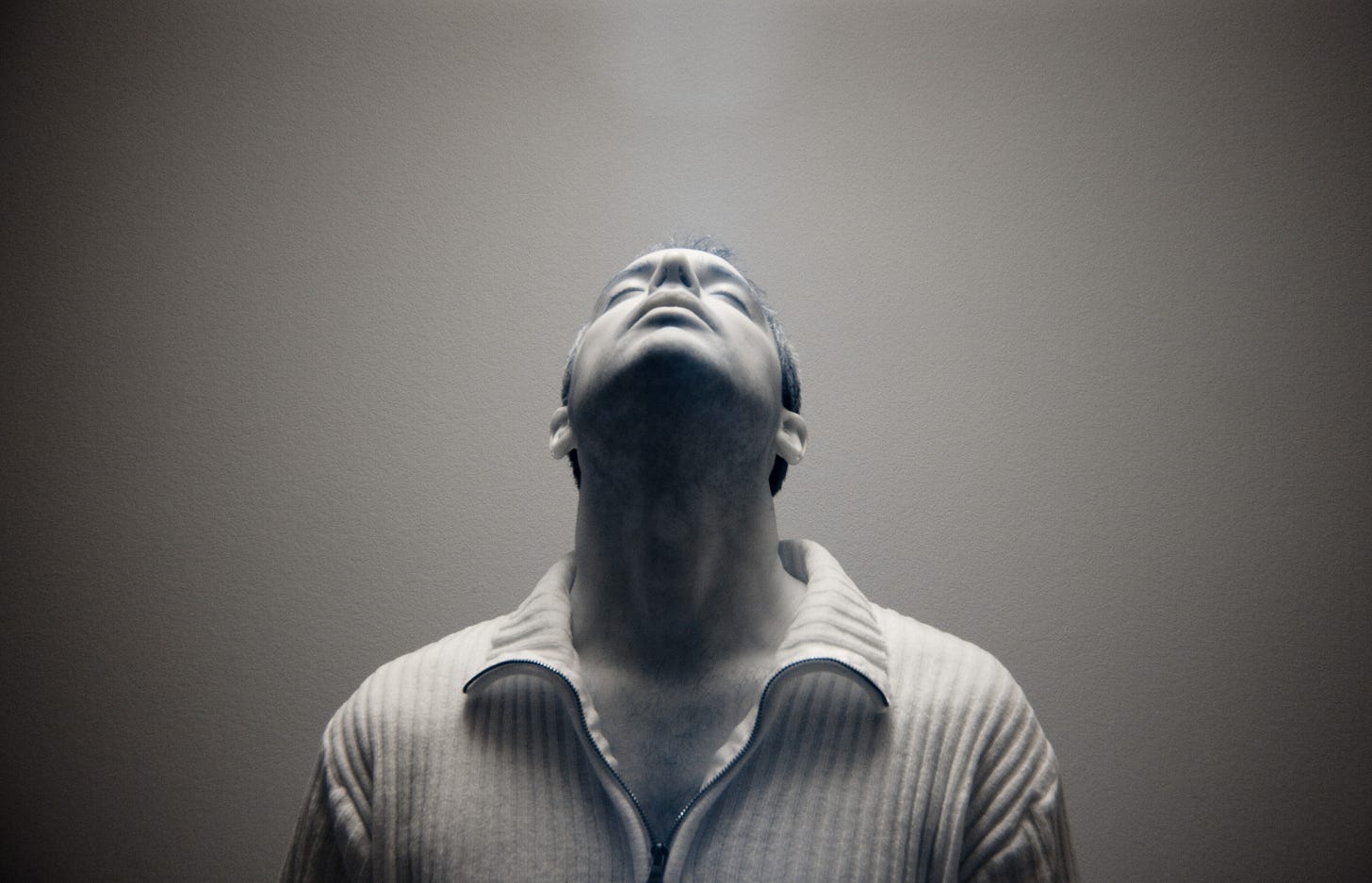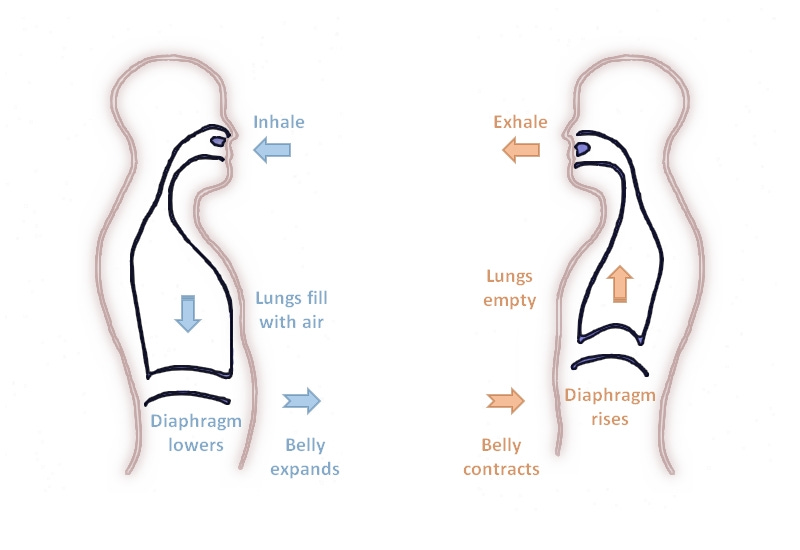Are you breathing right now?
A simple test
Do me a favour, would you? Place your right hand on your stomach, close your mouth and take a sharp intake of breath through your nose.
Now, ask yourself: did your stomach move inward, or outward? If you’re not sure, try it again.
My hunch is that, for around half of readers, your abdomen went inward. Which is weird, right? When we inhale, we draw air into our lungs. In doing so, the chest is supposed to expand as the diaphragm contracts and descends. If the opposite is happening, it is a pretty good indication that something has gone awry. There is, at least, a name for this phenomenon: inverted (or paradoxical) breathing.
As it turns out, there are many ways of doing it wrong. For example, by neglecting to breathe entirely. Lots of people hold their breath for prolonged periods without even realising. I know this because I used to be one of them. A while back, I was chatting with someone who, seemingly out of nowhere, asked me whether I knew I had not breathed for more than 30 seconds. I did not, in fact, know that. I mean, I wasn’t out of breath. I was just sitting down, casually suffocating myself.
In and out
Breathing is important. We take in oxygen and expel carbon dioxide, as much a waste product as the stuff that comes out the other end. I’m fairly confident that if you had not managed a normal bowel movement for several years, you would definitely know about it. But somehow, improper breathing gets a free pass.
My solution has been a two-pronged attack. First, by taking time during the day simply to notice whether I’m actually breathing. This is tricky, because breathing is supposed to be one of those involuntary bodily functions. You don’t have to instruct your heart to pump blood or your small intestine to absorb nutrients. There is a reason why it is called the autonomic nervous system.
Second, when I wake up and before I go to sleep, I slowly and deeply inhale through my nose — five seconds in, seven seconds out — ten times. When I first started doing this, I felt as if I might pass out through lack of oxygen. I mean, seven seconds is longer than five. But as with training any muscle, you get stronger.
By the way, if it sounds like I’ve been hacked — that I’m about to tell you that positive thoughts can cleanse polluted water or try to sell you scented candles — I don’t entirely blame you. I’m conscious that only yesterday, this newsletter burnt through 1,000 words on the history of the balance of payments. But I really am evangelical about this.
Not for the first time, it helps to be an Arsenal fan. You may know that Arsène Wenger helped to transform English football, with revolutionary ideas such as not drinking 12 pints the night before a match, or stretching after training. But he also went further. In her terrific book Invincible, which chronicled the Gunners’ unbeaten 2003-04 Premier League campaign (the less said about the cups, the better), Amy Lawrence revealed the team’s remarkable slogan: “chew to win”.
Central defender Martin Keown said:
It was explained to us that when you eat your food sometimes you feel a bit tired because the blood rushes from your head to your stomach to churn up the food. That’s using energy to do that. But if you chew, that doesn’t happen as your stomach has to do less. The theory is, we don’t want you burning up unnecessary energy on match day, so we want you to chew.
Recently, I was dragged away from watching old episodes of Newsnight on YouTube to celebrate a friend’s birthday. To my astonishment, I was ID’d for the first time in years. Now, there is greater merit in arguing with a dining room table than with a bouncer. But before I could stop myself, I protested:
Every night before bed I do 15 minutes of stretching and conscious breathing. Oh, and I recently switched to a lactose-free milk. Do you think I’m 17 years old?
To which he reluctantly let me in without further inspection. The music was loud, the floors sticky and everyone inside was at least a decade my junior. Never mind, I told myself. Just breathe through it.





You are almost certainly the only political journalist ever to have written about the joys of breathing. Keep going - there is a mountain to climb. When nutritional advice first started to become a thing in the NHS, one GP was overheard saying to a colleague, 'They'll be teaching us to breathe next!'
I'm reading the breathing bit on tube. Will try later.